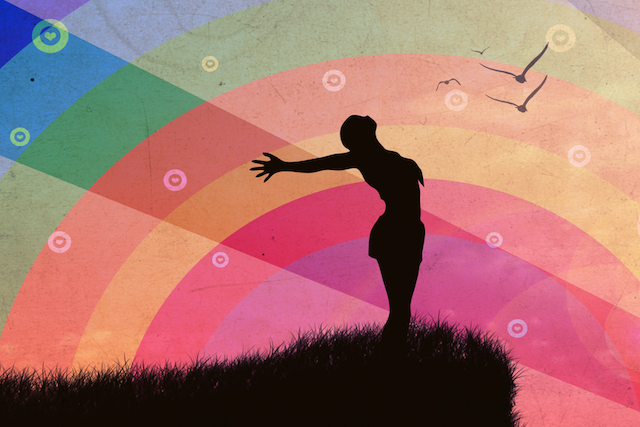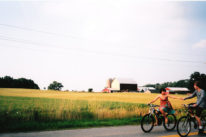
“Change is inevitable, growth is intentional.” ~Glenda Cloud
How much time slips by when you’re living in the pain of resentment? Do you ever question if your bitterness has held you back from living your true destiny? Is blaming everyone else sabotaging your life and future?
It’s only now that I can admit to the years I wasted pointing the finger at everyone else. It was easier for me to say it was their fault than accept responsibility for my own decisions. For me, attaining perfection was validation of my success. If it wasn’t achievable, then it was obviously someone else’s fault.
Until one day, I took the time to watch the Tony Robbins’ documentary movie, Guru, for the second time. Amazing when you watch something again or read a book twice, you get something different out of it.
There was a young girl struggling with the lack of love she received from her drug-addicted father. After admitting that it was her father’s love she craved the most, Tony Robbins led her to a breakthrough perspective.
He told her if you are going to blame him for everything that went wrong, like not being Daddy’s girl, then don’t forget to blame him for making you a strong woman too. He reminded her that she was allowed to blame him for not being around but not to forget to blame him for teaching her how to cope at such a young age.
Suddenly, I felt a shift within me. I connected to the anger deep within me, and somehow it no longer felt so heavy. What was happening? Unexpectedly, I realized the pain of my resentment was actually a gift.
I have carried a lot of emotional weight in my heart, some of which still remains. My heaviness is rooted in childhood memories of hurt and confusion. At the blissful age of eleven, just when I thought life was pretty safe and stable, I had the rug ripped out from underneath of me.
Infidelity and unfaithfulness had crept into our home and turned everything upside down. Everything I knew faded away as my mother threw his things around, screaming and crying. She was so emotional, and I couldn’t help but feel sorry for her. Her anger was wrapped up in sadness as she packed up all of my father’s belongings into black trash bags.
One by one out the door, like little pieces of my heart that she was just bagging up and throwing out. She set them out on our front lawn, and I stood there grieving.
She didn’t see the little girl in the corner crying along with her. Someone forgot the little soul who was being traumatized by these big emotions. No one stopped the chaos for a minute to realize my heart was breaking too. My memories of Christmas traditions and Saturdays at the grocery store never came back.
Everything changed, and I hated this new life.
From then on, everyone always seemed sad around me. I recall listening to my grandmother try to comfort my mother as she wept in her bedroom for weeks. I can still see the shame in my father’s face as he came and visited us every once in a while.
The raw vulnerability and pure helplessness I felt during those years were probably the most painful parts. The sense of being abandoned and left with all these intense emotions to deal with was so demanding. The pressure of trying to figure things out with no sense of direction left me with an underlying sense of unhappiness all the time.
It was then a seed of undeniable pain was planted. I would spend years nurturing this seed like it was my life’s purpose.
Growing up, I appeared to be okay with the change, but the days of confusion were simply endless for me. My new normal was abnormal, and the finality of the chaos ended when I accepted the idea that my parents would never get back together.
My mother was left trying to hold it all together, and it was a struggle to watch over the years. For the sake of her children and with the little strength she had left, I watched her work tirelessly to preserve the memory of a good life.
Despite her dedication to her children, the inevitable happened: Her little children grew up. We created our own version of our childhood memories, and our seeds of hurt began to bloom.
It’s a shame how pain, resentment, and fear have a way of spreading like wildfire within us. It shows up in the friends we hang out with, the partners we choose, and the weaknesses that destruct us.
When things fall apart, it’s hard to think clearly, let alone follow a path of success. It’s far easier to point the finger and hand out slips of blame to anyone close to you. But after years of feeling heavy, I was tired. I was ready to let this baggage go.
That evening, I reflected on what Tony Robbins said to the girl: “If you are going to blame people, then blame them for everything.”
This is how I transformed my resentment into gratitude:
If I was hardened by the things I didn’t get as a child, then I must be grateful for the life skills I now possess.
The resourcefulness I’ve gained throughout the years is immeasurable. I don’t say that out of arrogance, but out of pride. I used to resent the lack I grew up with, but now I’m so thankful because it nurtured my resilience. The desire for more fostered an enormous amount of determination within me.
If I blamed my parents for a tough childhood, then I must also thank them for teaching me how to be a great mother.
The insatiable craving to feel loved, noticed, and important gave me the skills to connect with my son on the most fundamental level. I know the value of establishing and maintaining this relationship with him because that’s all I ever wanted growing up, a close connection to my parents.
If I was saddened by the years of confusion in my life, then I must acknowledge the beautiful clarity present in my life now.
The tears shed were not in vain. Instead, they washed away a distinct path for me to travel. I can see the gift of my writing. The dreaded confusion gave birth to my innate ability to connect to others’ pain and articulate what they feel.
If I allowed the pain of my sadness to grow, then I must not forget to appreciate the goodness in my life.
I know what it feels like to be sad, but this led me to experience happiness on a whole new level. I find joy in really simple things, like a good cup of coffee. I can feel bliss when I am with my husband doing absolutely nothing. Most of all, I can live with a sense of true contentment in my life.
If I found fault in everyone for all the things I thought went wrong in my life, then I’m indebted to all these people eternally.
The agony I perceived as targeted was destined to be part of my life. The people I couldn’t forgive, who fostered hate within me, I now love even more. It’s because of them that I now live a fulfilled life with more to come.
You see, this is all part of life’s plan. The people we despise, the rage we harbor, and the bitterness we nurture are actually the tools we need to grow and evolve. The goal of transformation is to gain a higher level of awareness in our lives.
There is no achievement in staying stuck when the goal is to walk through these milestones. The problem does not lie in another person; it’s the fixed perspective you are perpetually protecting. Do not prolong experiencing real joy. Time is fleeting.
Transform your bitterness into sweetness, and your purpose will reveal itself to you. Dig deep, not to find fault in others, but to find the gifts within your soul; therein lies the gift of your pain and the beauty in all that you have suffered.
About Jamie Hannigan
Jamie Hannigan, at forty-one years old, decided to pursue her true passion for writing by sharing her insights on life with others. Through her blog posts at www.jamiehannigan.wordpress.com, she strives to connect with her readers on a personal level, offering a deeper look into some of life’s complex situations. She makes every effort to build lasting connections with everyone she meets and believes that every soul is destined for greatness.













 Though I run this site, it is not mine. It's ours. It's not about me. It's about us. Your stories and your wisdom are just as meaningful as mine.
Though I run this site, it is not mine. It's ours. It's not about me. It's about us. Your stories and your wisdom are just as meaningful as mine. 